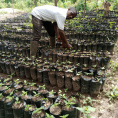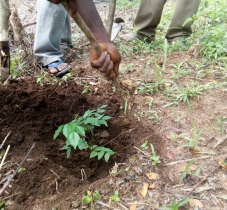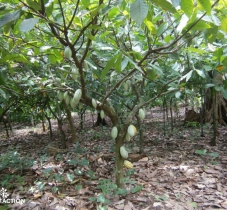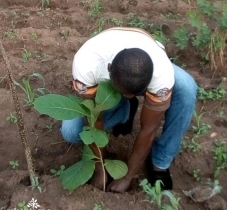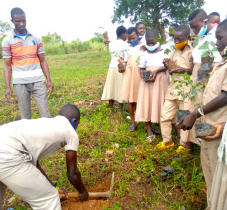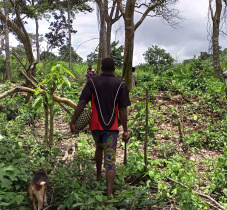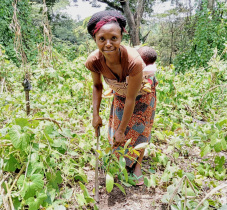Project description
Help restore Togolese agroforests by securing the ecosystem services they provide
The project in brief
- Number of trees to be planted: 180,000 over 3 years
- Planted species: cocoa tree, coffee trees, Erythrophleum suaveolens, Khaya grandifoliola, Albizia adianthifolia, Milicia excelsa, Albizia zygia, Terminalia ivoiriensis, Terminalia superba
- Type of project: Improvement of ecosystem services in cocoa and coffee agroforests
- Planting date: April to september
- Region: Plateaux Region, Central Region
- Preferences: Agou, Kloto, Kpélé, Danyi, Amou, Wawa, Blitta
Background information
In Togo, the forest covers 386,000 hectares, or 6.8% of the national area. Despite this already very low forest cover, the annual rate of deforestation (i.e. the area of forest cut in the year compared to the area of standing forest at the beginning of the year) in Togo reaches 4.5%: it is one of the highest in the world. Expansion of agricultural land, logging, forest fires and wood energy supply: this human-induced deforestation is reinforced by the country's population growth. The coffee and cocoa sectors suffer from the lack of quality seedlings and the ageing of stands.
In partnership with the Union Technique Café-Cacao (UTCC), the Forest Research Laboratory of the University of Lomé and the Kinomé social enterprise, Reforest'Action participates in the development of agroforestry systems (called "agroforests") for coffee and cocoa. The objective: to evaluate and support ecosystem services (hosting biodiversity, seed or fruit production, carbon storage, etc.) produced by these agroforests.
Planted around the fields of yam, cassava and maize farmers, coffee and cocoa trees are complemented by various complementary "high jet" species, which are intended to protect the underlying crops. These complementary species are chosen by local farmers for the quality of the shade they provide, the improvement of fertility and soil conservation under their feet and the provision of quality wood.
Coordinated on the field by our partner Kinomé, the plantations take place in 19 villages belonging to 7 prefectures in the southern half of Togo (Agou, Kloto, Kpélé, Danyi, Amou, Wawa and Blitta). Coffee and cocoa producers are also trained on the installation and operation of local nurseries to supply the project. These nurseries are now located in 60 villages in the prefectures associated with the project.
The project
12 species are planted to restore coffee and cocoa agroforests: rain tree, fraké, tali, mahogany, mandarin, orange, etc.
These were chosen for the multiple interests they represent : shade, soil fertilization, production of energy wood and timber, production of fruits, spices and medicinal products.
Benefits
In the long term, the trees planted will support the ecosystem services provided by the forest in the coffee and cocoa bean production areas: production of goods, preservation of biodiversity and carbon storage.
This approach will allow the reconstitution of the vegetation cover, the reforestation of risky areas (mountain slopes). It will also help secure harvests and be a ground for research on the quality of agroforestry trees within crops.





